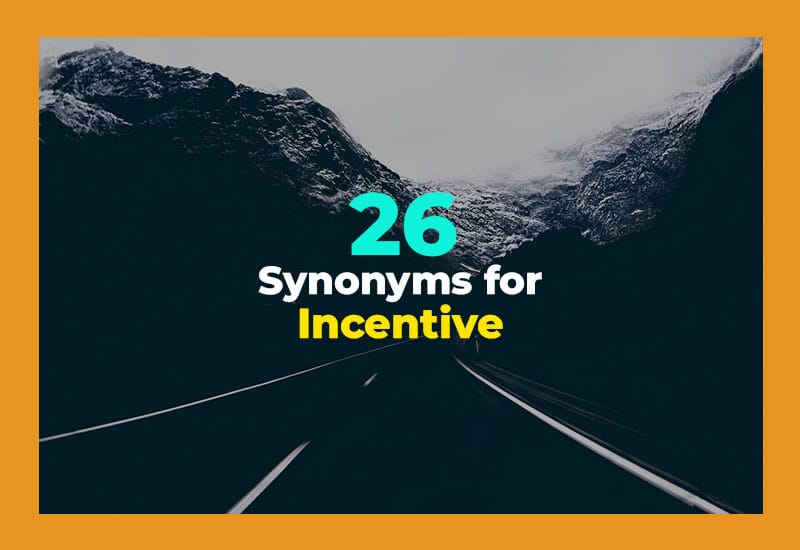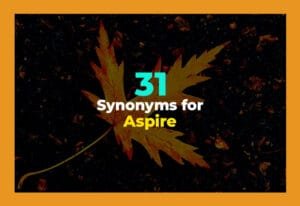You probably know how important it is to find just the right word when talking about motivation. Whether you want to describe what makes someone work harder or what encourages a team, having many ways to say incentive can be really useful.
Sometimes, a different word like reward, boost, or motivation fits better and makes your message clear and fun. Let's explore some great synonyms that can help you express the idea of incentive in different ways, with easy explanations and examples you can use right away!
1. Motivation
Motivation means the reason why someone wants to do something. It is the driving force that pushes people to take action. For example, "She has strong motivation to study hard because she wants to get a scholarship." Motivation can be from inside, like personal goals, or from outside, like rewards. When someone is motivated, they feel excited and ready to work. Without motivation, it's hard to finish tasks or reach goals. So, it's a key word when talking about incentives because it shows why people choose to do things.
2. Encouragement
Encouragement is when you give someone support or confidence to do something. It helps people feel brave and positive. For example, a coach might say, "You can do it!" to encourage a player. Encouragement is important because it makes people believe in themselves. It's like a friendly push that helps people try their best, even when something is hard. Sometimes, just kind words or a smile can be enough encouragement to keep going. This word fits perfectly when talking about small but powerful incentives.
3. Inducement
An inducement is something that makes you want to do something. It's like an offer or promise that encourages action. For example, "The company gave an inducement of a free gift to new customers." It can be money, prizes, or any special deal. Inducements work because they create a reason to choose one thing over another. They are often used in business or sales, where people need a good reason to pick a product or service. This word sounds a bit formal but is very useful in certain situations.
4. Stimulus
Stimulus is something that causes a response or action. For example, "A bonus was a stimulus for employees to work harder." It can be an event, reward, or anything that triggers motivation. In real life, stimulus can come from many sources, like praise or challenges. The word is often used in science but fits well when talking about incentives because it shows how something causes a reaction. If you want to sound smart and clear, stimulus is a great choice to describe what pushes people forward.
5. Reward
A reward is a prize or gift you get for doing something good. For example, "She received a reward for finishing her homework early." Rewards make people feel happy and proud. They are clear and direct incentives that show the value of effort. Rewards can be money, gifts, or even praise. Many companies use rewards to motivate their employees, like bonuses or extra days off. It's a simple word that everyone understands and loves because everyone enjoys being rewarded for hard work.
6. Bonus
A bonus is an extra amount of money or a prize given to someone as a thank you or motivation. For example, "Employees got a bonus for reaching the sales target." It's usually unexpected and makes people feel special. Bonuses encourage people to do their best and stay loyal. In businesses, bonuses are common ways to reward success. But bonuses don't have to be money; they can be anything extra that makes a person feel appreciated. It's a very popular and positive word when talking about incentives.
7. Perk
A perk is a special benefit or extra that you get from a job or a situation. For example, "One of the perks of this job is free coffee." Perks are small incentives that make people happier and more comfortable. They can include flexible hours, discounts, or free meals. Perks don't cost much but make a big difference in motivation and satisfaction. If you want to show the nice little extras someone gets as encouragement, this is the perfect word.
8. Benefit
Benefit means something good that comes from an action or situation. For example, "One benefit of exercising is better health." Benefits can be rewards, advantages, or improvements. They encourage people to do things because they expect positive results. Companies often talk about benefits like health insurance or paid vacations to attract workers. When you want to explain why something is worth doing, using benefit helps others see the value clearly and simply.
9. Prompt
A prompt is a signal or reminder that encourages someone to act. For example, "The teacher gave a prompt to help the student answer the question." Prompts can be words, actions, or signs that push people in the right direction. They act as gentle incentives, reminding people what to do or why it matters. Prompts are helpful when motivation is low, or when people need a little nudge to keep going. It's a soft but useful word for everyday encouragement.
10. Spur
A spur is something that encourages quick action or effort. For example, "The chance to win a prize was a spur to finish the project fast." It means a push or stimulus that makes someone try harder. The word comes from riding horses, where a spur is a tool to make the horse move faster. In daily use, it means anything that excites or pushes people to do their best. It's a lively and energetic word, perfect to describe strong incentives.
11. Catalyst
A catalyst is something that causes change or action to happen quickly. For example, "The new manager was a catalyst for better teamwork." It speeds up progress and motivates people to act. Catalysts don't force action but make it easier or faster. In business and science, this word is used often to explain what starts important changes. If you want to highlight a powerful reason for motivation, catalyst is a smart word to use.
12. Impetus
Impetus means the force or energy that makes something happen. For example, "The idea gave impetus to the team's creativity." It shows the reason or push behind an action. Impetus can be a thought, event, or reward that motivates people. It's a formal word but useful when talking about the power that drives progress. If you want to express the spark that starts movement or growth, impetus fits perfectly.
13. Drive
Drive means strong determination to achieve something. For example, "Her drive to succeed helped her finish the marathon." It's an inner force that keeps people going despite challenges. Drive is about focus, energy, and willpower. People with drive don't give up easily and work hard for their goals. It's a popular word when talking about personal incentives because it shows how motivation comes from inside a person.
14. Inspiration
Inspiration means the feeling that makes you want to create or do something great. For example, "The teacher's story was an inspiration to all the students." Inspiration often comes from other people, nature, or ideas. It gives energy and hope. When people feel inspired, they want to improve and achieve more. Inspiration is a beautiful word for incentives because it shows how motivation can be emotional and creative, not just practical.
15. Enticement
Enticement means something attractive that tempts you to do something. For example, "The free samples were an enticement to try the new product." It's like a sweet offer that draws people in. Enticements are often used in marketing to make things more appealing. They work because they offer pleasure or advantage. If you want to describe a tempting reason to act, enticement is a perfect choice.
16. Allurement
Allurement is similar to enticement; it means something attractive or tempting. For example, "The allurement of a tropical vacation encouraged many to sign up." It has a soft, inviting feeling and often relates to pleasure or beauty. Allurements can be gifts, offers, or experiences that make people want to take action. This word sounds a bit poetic and is great when describing incentives that are appealing in a gentle way.
17. Persuasion
Persuasion means convincing someone to do something by giving good reasons or charm. For example, "Her persuasion helped the team agree on the plan." It's a mental incentive because it changes people's thoughts and feelings. Persuasion works by showing benefits or using emotions. It's often used in sales, leadership, and debates. If you want to talk about incentives that involve changing minds, persuasion is the perfect word.
18. Influence
Influence means the power to affect how someone thinks or acts. For example, "His positive influence inspired others to be kind." It can be a subtle or strong force. Influence often works through example or respect. It is an indirect but effective incentive because it shapes decisions without force. When talking about how people or ideas encourage action, influence is a clear and useful term.
19. Provocation
Provocation means something that causes a reaction, often strong or emotional. For example, "The challenge was a provocation that pushed her to prove herself." It can be positive or negative but always motivates action. Provocation can be a good tool to create energy and focus. If you want to describe incentives that stir feelings or competition, provocation is a powerful word to use.
20. Reason
A reason is the cause or explanation for doing something. For example, "The main reason for saving money was to buy a car." Reasons are clear incentives because they show why a choice is made. Everyone uses reasons daily to decide what to do. If you want to explain incentives simply and directly, reason is the best word. It shows logic and purpose behind actions.
21. Aim
Aim means a goal or target someone wants to reach. For example, "Her aim was to finish the race in under an hour." Aims give direction and purpose. They help people focus their effort and stay motivated. A clear aim acts as an incentive because it shows what to work toward. When setting plans or challenges, aim is a simple but powerful word to explain motivation.
22. Goal
A goal is a specific target or result someone wants to achieve. For example, "His goal is to learn three new languages this year." Goals act as incentives by giving a clear finish line. They help measure progress and keep people moving forward. Goals can be big or small, short-term or long-term. Using goal makes motivation easy to understand because it shows exactly what someone wants.
23. Objective
An objective is a planned result or purpose. For example, "The company's objective is to increase sales by 20%." Objectives guide action and decisions. They work as incentives by giving a clear plan and success measure. Objectives are often used in business and education because they organize effort. When talking about incentives that are part of a plan, objective is a professional and clear word.
24. Target
A target is a specific goal or aim, often with numbers or limits. For example, "The sales team met their monthly target." Targets are clear incentives because they give measurable challenges. They push people to focus and improve. In sports, business, and education, targets help track success. Using target in your writing shows clear expectations and motivation to reach results.
25. Push
A push is a force or effort that helps someone move forward. For example, "The coach's speech gave the team a push before the game." It's a physical or emotional encouragement. Pushes work as incentives because they add extra energy or motivation. Sometimes, a little push is all someone needs to overcome hesitation. It's a simple, active word to describe quick or needed incentives.
26. Urge
An urge is a strong desire or need to do something. For example, "She felt an urge to call her friend after hearing the news." Urges can motivate action immediately. They come from feelings or instincts. When people have an urge, they feel a natural incentive to act. It's a personal and emotional word that explains why people sometimes just have to do something.

Final Thoughts
Finding the right word for incentive can make your writing clearer and more interesting. Whether it's motivation, reward, or encouragement, these synonyms help you explain why people act. Using different words also keeps your message fresh and fun. Try them out in your conversations or writing, and watch how your ideas become stronger and easier to understand. With these 26 synonyms, you're ready to describe incentives in many colorful and clear ways!









